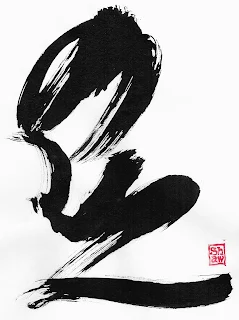With the rise of ai developed research, I have become enthralled with the congregation of ideas that it puts out there. As Zen Filmmaking is obviously one of the primary elements of my life, I have questioned Bard and ChatGPT about Zen Filmmkaing a couple of times. For the most part, great definitions. Here are a couple of them:
1.
Zen Filmmaking is a creative approach to filmmaking that emphasizes the present moment and the intuitive, spontaneous nature of the filmmaking process. It is influenced by Zen philosophy and meditation practices, and emphasizes a focus on the present moment and a sense of flow in the creative process.
The basic idea behind Zen Filmmaking is to let go of preconceived ideas and expectations about what a film should be and instead focus on the process of making it. This can involve techniques such as improvisation, working with a small crew or no crew at all, using available resources, and embracing mistakes and accidents as opportunities for creativity.
One of the key principles of Zen Filmmaking is the idea of "one-pointed attention," which means being fully present and focused on the task at hand. This can involve techniques such as meditation, deep breathing, and other mindfulness practices to help filmmakers stay present and in the moment.
Another important aspect of Zen Filmmaking is the idea of non-attachment, which means letting go of attachment to specific outcomes and allowing the creative process to unfold naturally. This can involve taking risks, trying new things, and embracing uncertainty and unpredictability in the creative process.
Overall, Zen Filmmaking is a unique approach to filmmaking that values the
process of creation as much as the final product. It emphasizes the importance
of being present, letting go of expectations, and embracing spontaneity and
creativity in the filmmaking process.
2.
Zen Filmmaking is a creative approach to filmmaking that emphasizes simplicity, intuition, and spontaneity. It is a filmmaking philosophy that was popularized by the American filmmaker Scott Shaw in the 1990s.
The philosophy of Zen Filmmaking is based on the Zen principle of "living in the moment," and emphasizes a focus on the present rather than on the past or future. The idea is to let go of preconceptions and allow the creative process to unfold naturally, without interference from the ego.
Zen Filmmaking encourages filmmakers to work with minimal equipment and crew, and to rely on their instincts and intuition to guide the creative process. It also emphasizes the importance of the present moment, with a focus on capturing the essence of the moment rather than striving for perfection.
One of the key principles of Zen Filmmaking is the concept of "One-Take." This means that the entire scene is filmed in a single take, without any editing or retakes. This technique requires a great deal of preparation and rehearsal, but can result in a more natural, spontaneous performance from the actors.
Overall, Zen Filmmaking is a way of approaching filmmaking that emphasizes simplicity, intuition, and the present moment. It is an alternative to the more traditional, structured approach to filmmaking, and is meant to encourage filmmakers to experiment with new techniques and approaches to the creative process.
3.
Zen Filmmaking is a term used to describe a style of filmmaking that emphasizes simplicity, minimalism, and a focus on the present moment. It is inspired by the principles and philosophy of Zen Buddhism, which emphasizes mindfulness, self-awareness, and an understanding of the interconnectedness of all things.
Zen Filmmaking is characterized by a focus on the present moment, with minimal use of special effects and a preference for natural lighting. Filmmakers who embrace this style often use long takes and static shots, and favor natural sound over added music. They also often take a hands-off approach to directing, allowing the actors to develop their performances in a natural and organic way.
In Zen Filmmaking, the emphasis is on capturing the essence of a moment rather than trying to control or manipulate it. It is about capturing the natural beauty of the world, rather than trying to impose an artificial vision on it. The goal is to create a film that is true to the present moment and reflects the interconnectedness of all things, rather than trying to impose a preconceived idea or message on the audience.
Zen Filmmaking can be seen as a form of mindfulness in cinema, it's a way to capture the essence of a moment and share it with the audience. It creates a sense of intimacy and connection with the audience, as they are able to experience the present moment in a way that feels authentic.
4.
Zen filmmaking refers to a philosophy or approach to making films that emphasizes simplicity, minimalism, and mindfulness. It is inspired by Zen Buddhism and aims to create a sense of calm and stillness in the audience by removing unnecessary elements and focusing on the essentials. This can manifest in various ways, such as through the use of minimal dialogue, long takes, and natural lighting. The goal of Zen filmmaking is to create a meditative and immersive experience for the viewer, rather than simply telling a story.
Originally from the Scott Shaw Blog
















